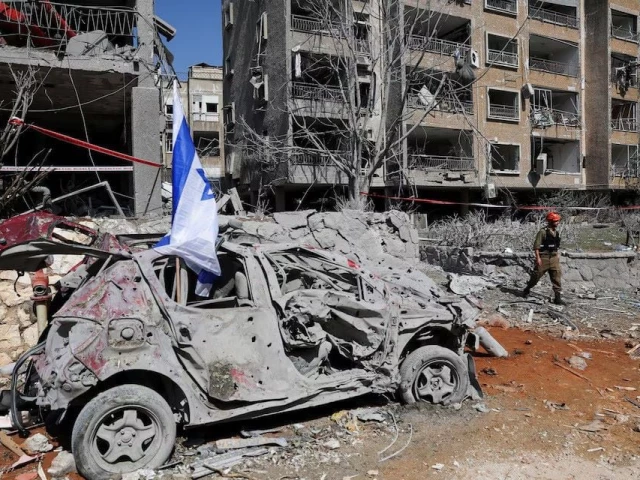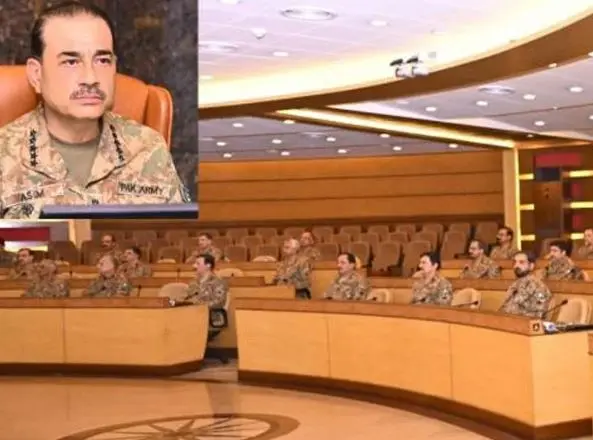Israel continued its attacks on Iran for the second consecutive day on Saturday, with Prime Minister Benjamin Netanyahu vowing to intensify the campaign. Tehran, meanwhile, warned of a “heavy” retaliation against Israel expected within hours.
Following Israel’s surprise strike that killed top Iranian military commanders, Israeli forces targeted Iran’s oil and gas infrastructure for the first time, with Iranian state media reporting a fire at a gas field. The Israeli military also struck an underground missile facility in western Iran’s Khorramabad, which housed surface-to-surface and cruise missiles. Military spokesman Brigadier General Effie Defrin noted this site had been previously shown in Iranian propaganda.
Israeli Defense Minister Israel Katz issued a stark warning that “Tehran will burn” if Iran continued its retaliatory missile attacks. The missile strikes by Iran killed three people and injured at least 91 across central Israel, following Israeli airstrikes on Iranian nuclear and military targets.
Israel’s military officials confirmed ongoing strikes on Iranian air defense systems and said attacks would continue “as long as necessary.” Iran’s Tasnim news agency reported the deaths of two Islamic Revolutionary Guard Corps (IRGC) members in an Israeli airstrike on a military base in central Iran, describing the assault as brutal.
READ MORE:
Iran Downs 10 Israeli Aircraft in Just One Hour, Military Claims
Katz, addressing Iran’s Supreme Leader Ayatollah Khamenei, accused him of holding Iranian citizens hostage and warned of severe consequences if missile attacks on Israel persist.
Israel claimed to have targeted dozens of missile launchers and air defense sites near Tehran, with casualties reported among IRGC members in Zanjan province. Tasnim also reported the deaths of three Iranian nuclear scientists in the strikes. The Israeli military called the operation “Rising Lion,” targeting critical elements of Iran’s nuclear program and claiming the deaths of nine senior weapons scientists.
Despite active Israeli air defenses intercepting many missiles, some buildings in Israel, including Tel Aviv, suffered damage from missile shrapnel. At least 35 Israelis were injured, some critically, and one missile caused a fire near Israel’s Defence Ministry.
The death toll in Israel reached three after a woman injured in the initial missile strikes died. Hundreds of apartments in Tel Aviv’s suburbs were damaged, and hundreds of residents evacuated due to structural concerns.
The United Nations Security Council saw heightened tensions as Iran accused the US of enabling Israel’s offensive. US officials confirmed prior notification of Israel’s plans but denied involvement, urging Iran to return to negotiations and warning of dire consequences if US assets were targeted. US President Donald Trump acknowledged being aware of the Israeli operation and warned Iran to seek a deal before “there is nothing left,” while expressing a desire to avoid wider conflict.
Pakistan strongly condemned the Israeli strikes, calling them “unjustified and illegitimate aggression” violating Iran’s sovereignty and international law. Pakistan’s Foreign Office emphasized Iran’s right to self-defense and urged the international community to halt the aggression and hold Israel accountable. Pakistan’s Deputy Prime Minister and Foreign Minister, Senator Mohammad Ishaq Dar, expressed Pakistan’s solidarity with Iran in a call with Iranian Foreign Minister Seyed Abbas Araghchi, condemning the attacks and offering condolences for the loss of life.
Meanwhile, Rafael Grossi, Director General of the International Atomic Energy Agency (IAEA), warned the Security Council of the grave risks associated with targeting nuclear facilities, emphasizing the importance of nuclear safety and regional stability, and offered IAEA support for damage assessment and diplomatic efforts.




